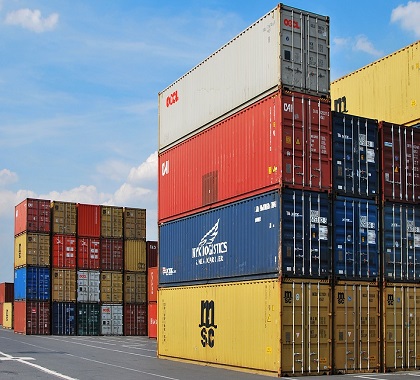President Donald Trump announced the successful renegotiation and rebranding of the North American Free Trade Agreement, now known as the United States-Mexico-Canada Agreement (USMCA).
One provision of USMCA, which has yet to be ratified by Congress and the respective legislative bodies of Canada and Mexico, is a requirement that all automobiles manufactured and sold in the three countries have at least 75 percent of their parts made by businesses within the bloc, and up to 40 percent of all automobile content be produced by individuals earning $16 an hour or more.
Since March 1, 2018, the U.S. government has imposed a 25 percent levy on the cost of steel and a 10 percent fee on aluminum imported from foreign countries. Imports originating in Canada, the European Union, and Mexico were initially exempt from the tariffs, but Trump signed a May 31 order subjecting those countries’ businesses to the tariffs. Barriers to Canadian- and Mexican-produced aluminum and steel will remain in effect despite the trade deal.
If approved, USMCA will take effect in 2020 and be reviewed in 2036.
Says Accord Resolves Disagreements
Clifford Thies, an economics professor at Shenandoah University and a policy advisor for The Heartland Institute, which publishes Budget & Tax News, says USMCA resolves several long-simmering trade disputes among the bloc’s members.
“On the Canadian side, they were wanting fairer treatment of timber exports to the United States,” Thies said. “On the U.S. side, there were dairy farmers who wanted access to Canada. Those two things were addressed. The other thing really pertains to China: Automobiles must have 40 percent North American content to flow from one to another member of this agreement. This is to prevent China from sending parts to Mexico to simply be assembled and then sent to the United States.”
Reduces Some Export Costs
Christine McDaniel, a senior research fellow at the Mercatus Center, says increasing the ‘de minimis’ threshold, the value below which duties and taxes on incoming goods are not charged, will help promote American small businesses’ growth.
“Raising the de minimis will help to facilitate e-commerce, particularly from small businesses in the United States,” McDaniel said. “Think of digital platforms with new, innovative financial technologies like eBay or Etsy that might use PayPal or some other easy form of digital payment. Direct business-to-consumer, cross-border trade is increasingly popular, and small businesses take advantage of that.”
Disagreeing Over Origin Rules
Thies says USMCA’s restrictions on the origins of parts used in automobile manufacturing will ultimately benefit U.S. business owners and consumers.
“It is a very good step for two reasons,” Thies said. “First, it addresses a couple of immediate concerns, two little irritants that percolated up in the last several years between the United States and Canada, and the potential concern that China will set up factories in Mexico to bypass our tariffs. It addresses those concerns, and it affirms that Trump is for free trade, so long as it’s fair trade.”
Linnea Lueken ([email protected]) writes from Laramie, Wyoming.
Internet Info:
Lucinda Vargas, “NAFTA, the U.S. Economy and Maquiladoras,” Federal Reserve Bank of Dallas, 2001: https://heartland.org/publications-resources/publications/nafta-the-us-economy-and-maquiladoras





